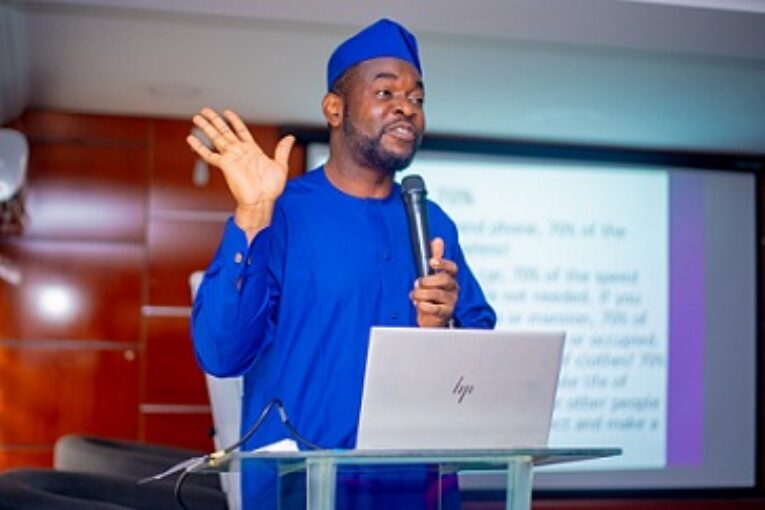
The Vice Chancellor of the African School of Economics (ASE), Abuja, Prof. Mahfouz Adedimeji, has cautioned Nigerians, especially the youth, against the pervasive obsession with immediate gratification, emphasing that efficiency requires consistency.
Prof Adedimeji warned that the reward for efforts might not come immediately, noting whatever is good and great takes some time to fully manifest.
He gave the advice in his address, “Learning is Relearning and Unlearning”, delivered at the opening of a two-day capacity building training programme, themed “Maximizing Efficiency in the University/Workplace”, organised by the university last Thursday.
“It is natural law that patience and perseverance ultimately pay as they prepare one for greatness,” he said.
While calling on Nigerians to make preparations for the future by investing in their today, Adedimeji, a Fellow of Corporate Administration of Nigeria, urged students to learn from Abraham Lincoln, who said he would study and get ready first, and someday, his chance would come.
“Let’s always study and get ready by learning, relearning and unlearning because learning is the superpower of superpowers, the one that grows the rest of them,” he advised.
Prof. Adedimeji alluded to the metaphor of the Chinese bamboo tree, the seed of which he said would show no sign of growth in the first three to four years, during which it was building an intricate root system.
He added that in the fifth year, the tree would finally sprout from the soil and in just six weeks, it would grow to an incredible height of 80 to 90 feet.
He urged the participants to maximise their time and enjoined them to avail their loved ones of the opportunities offered through the undergraduate and postgraduate programmes of the university.
The VC noted that ASE, the Pan-African University of Excellence, not only offers transnational university education but also blends theory with practice, with a focus on producing graduates who are academically sound, professionally skilled, entrepreneurially competent and globally competitive.
Prof Adedimeji also called for the entrenchment of due process in public affairs and corporate governance, urging Nigerians to embrace work ethics, maintain safety, prioritise security, develop conflict management skills, be financially literate and nourish lifelong learning.
He disclosed that the exercise was aimed at providing a platform for upskilling, reskilling and retooling the participants comprising members of the university community and the general public in critical areas of professionalism and development.
The former VC of Ahman Patigi University in Kwara State explained that the modules of the training included Organisational Behaviour and Ethics, Time Management and Self-development, Safety and Security in the Workplace, Effective Communication and Conflict Management as well as Financial Literary and Lifelong Learning, stressing that everything was aimed at making the participants more efficient.
He described efficiency as doing things right, following due process, increasing output while decreasing waste, energy, time and resources, recounting how an Italian student, Francesco Cirillo, who first struggled with procrastination, developed what is known as “The Pomodoro” in the 1980s.
“The technique required working with focus for 25 minutes and taking a short break before returning to another cycle of work, an approach that has been found useful worldwide as a way of enhancing personal efficiency,” he added.
In their various presentations, the resource persons, Mrs Ifeoma Okoye, Mrs Emilomo Ogunboye, Prof. Adegboyega Karim, Dr Anthonia Ajikeme and Prof. Adedimeji, demonstrated how efficiency could be achieved at work and on campus through self-discipline, hard work, time management and a commitment to personal development through effective communication, lifelong learning and financial literacy.
The highlights of the training included simulations, group presentations and award of certificates to the participants, especially from the university community and the National Institute for Security Studies, Abuja.
In their remarks, the participants expressed appreciation to the African School of Economics for what they described as a transformational training programme with intense engagements.
They also requested that future editions should be made more open to Nigerians across sectors in order to make the benefits of the training more far-reaching.




